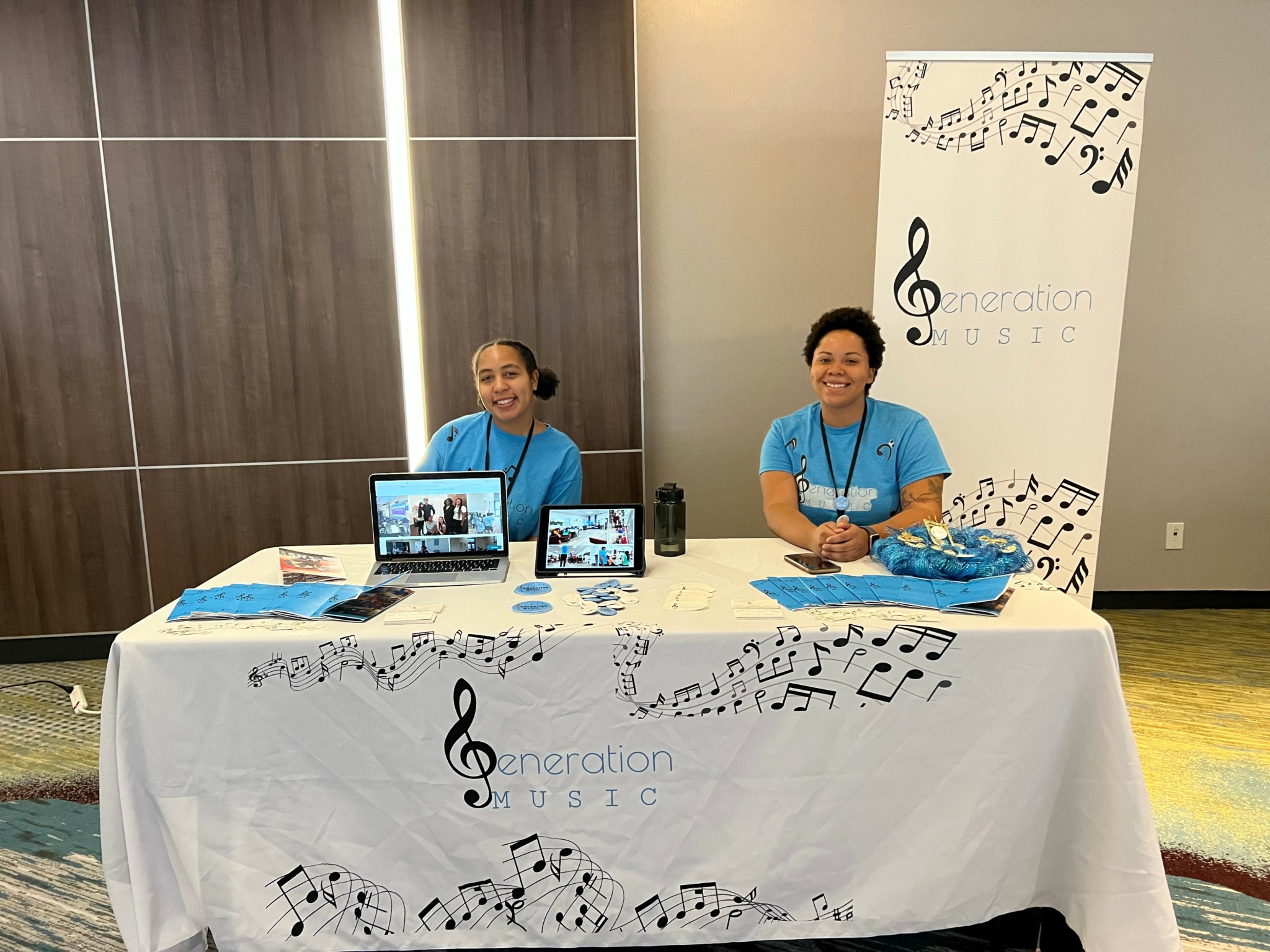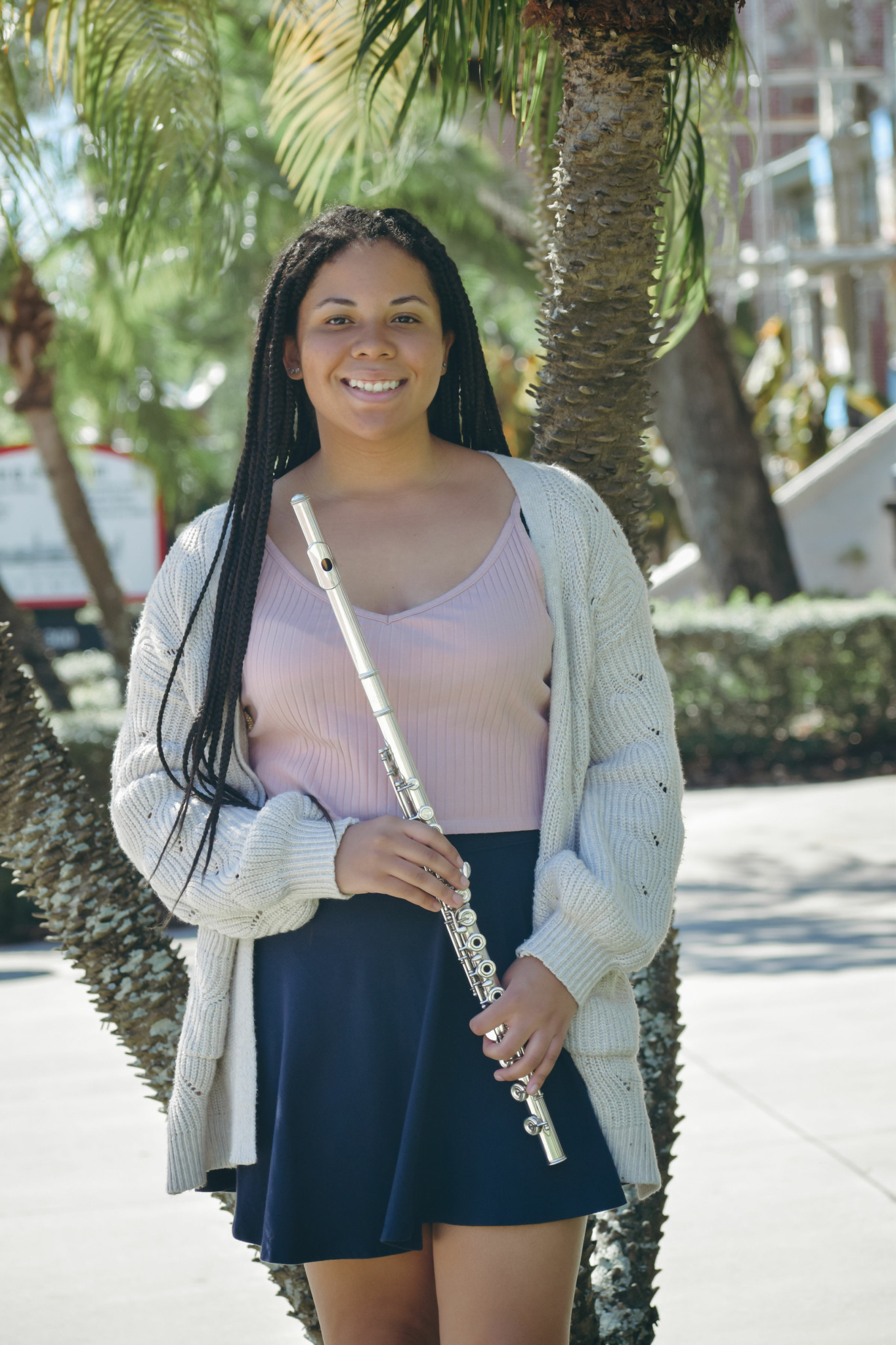We’re excited to introduce you to the always interesting and insightful Chloe Cooper. We hope you’ll enjoy our conversation with Chloe below.
Chloe, thanks for joining us, excited to have you contributing your stories and insights. What’s one of the most important lessons you learned in school?
I think the two most important lesson I’ve learned while being in school are; 1.) You are always a student of life and 2.) It’s OK to go at your own pace.
My aunt is the one who instilled in me that school doesn’t stop after you graduate. There is always a workshop, class, person or youtube video that you can learn from. It’s impossible to know everything, and learning in real world experiences from mentors is the most valuable in ensuring your business is growing at its fullest potential. It’s been easy for me in the past to only want to stick to my ideas and not fully hear new suggestions from my team or quickly shut down talks that prompted trying something risky or out of our norm. Having evolved out of that behavior, I’m seeing how collaborating ideas can really be the catalyst for expanding your business and boasting morale. I think that saying really stuck with me in my first year of college. Along with my classes for my major, I was lucky enough to have met a lot of people that have served as mentors for me, showing me a new way of tackling challenges.
The second lesson of ‘going at your own pace’ came after I had to withdraw from my college, The University of Tampa after having difficulties paying for my semester. It was a reach applying to a university so far away from Philadelphia but felt like a good opportunity that I wanted to have for myself. My first year in school was also met with difficulties in paying my tuition. Student loans and grants just barely covered the cost of my semester and then returning to school after COVID became harder to pay out of pocket expenses and tuition. At first I felt defeated, because I had worked so hard to go to the college of my choice in Tampa, Florida and taking a risk of moving so far away from home, I wanted to prove that I could successfully pull it off. I also felt like withdrawing from college meant I would fall behind on goals I had set for myself and the long term results I wanted to achieve personally and for my business. After making that decision, I had to shift my focus from the mentality of a full time student to the realities of being an adult with new responsibilities that weren’t related to school work. That same year I moved into my first apartment off campus and started working full time. I’ve found great and affordable certification classes for entrepreneurship and project management through engines like Coursera, Google Certificates, and Temple University’s Small Business Development Center to continue my training in a non-traditional way. Through these new mediums of education I no longer feel behind compared to my peers or the need to rush into something that might not be the best fit for me. These hardships have taught me that working at my own pace will yield greater results for myself and who I want to be.
These lessons have been important to me because being an entrepreneur means being flexible and open to learning different ways of doing things for the common goal of growing your business. I’m proud to say that I have grown so much following those lessons and have learned to roll through the punches. Not having a college degree doesn’t take away from the experiences I gained both in and out of school. I feel grateful to be living in an era where school and education doesn’t imply a brick and mortar facility, but instead can be offered through the computer. Professional development workshops, internships, and fellowships are just a few ways I’ve been able to continue my education and learning about running a non-profit business.
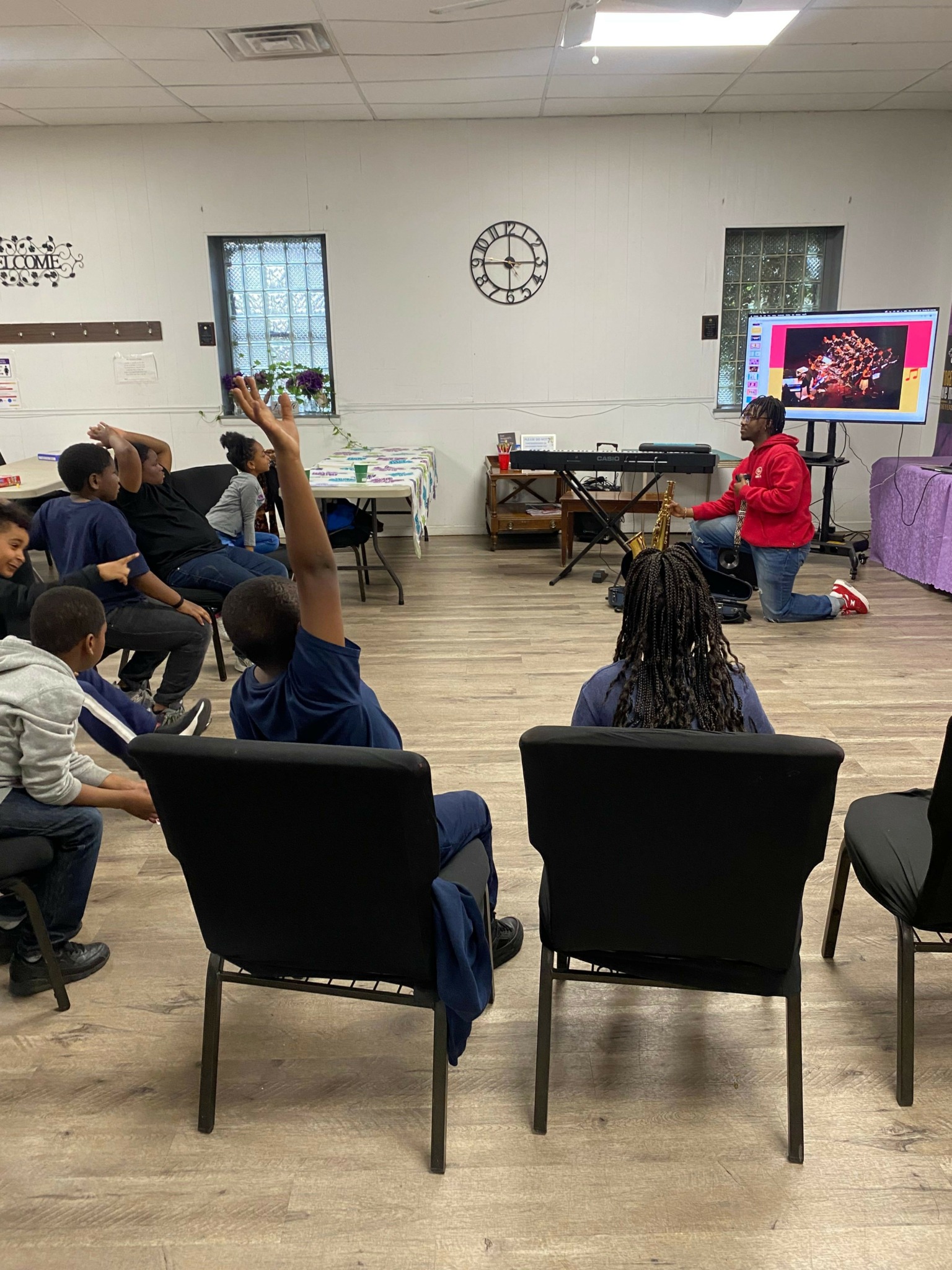
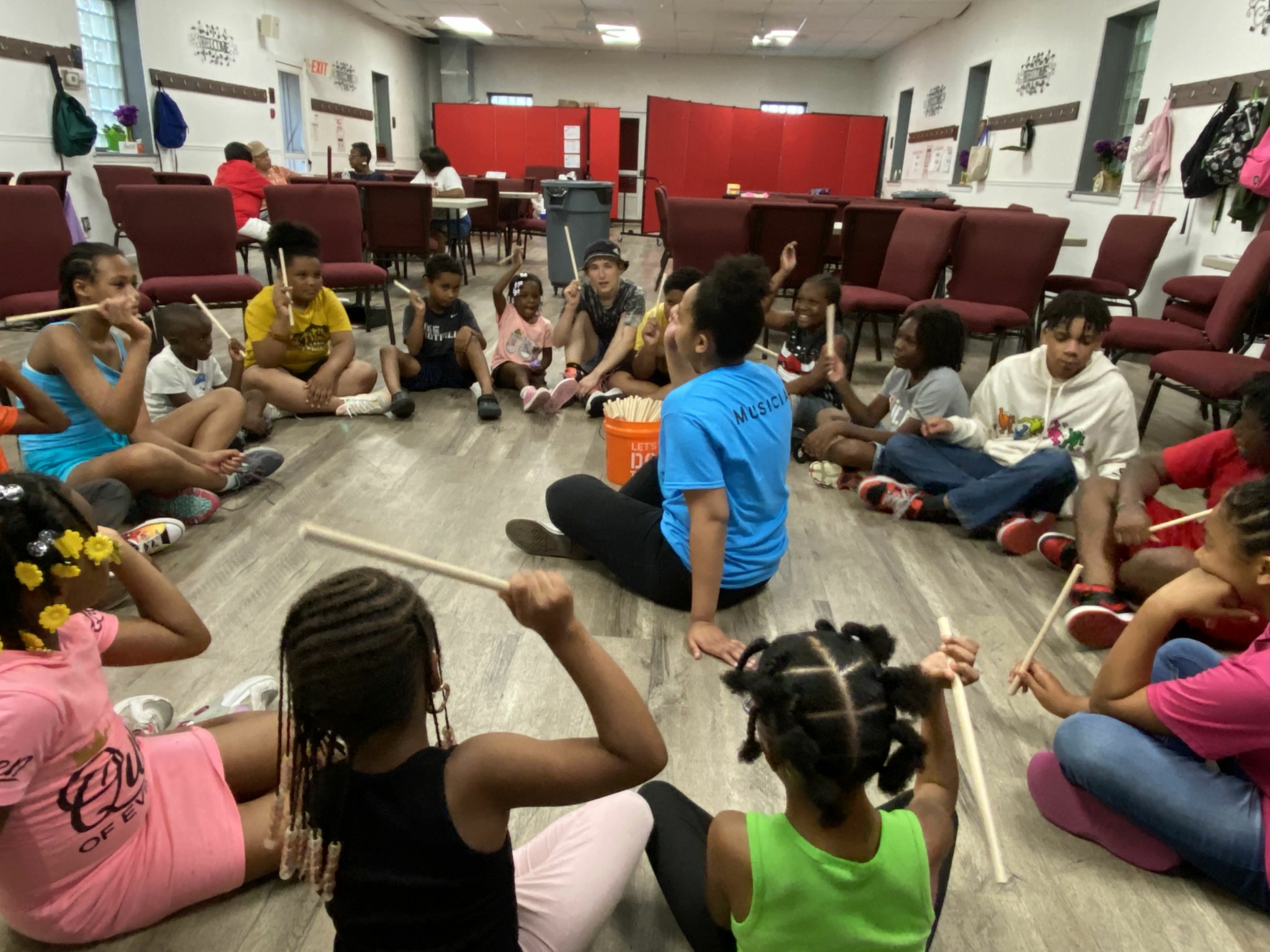
Great, appreciate you sharing that with us. Before we ask you to share more of your insights, can you take a moment to introduce yourself and how you got to where you are today to our readers.
My name is Chloe Cooper, I am 23 years old from Philadelphia, PA and I am the cofounder and Executive Director of Generation Music. I started playing the flute when I was in the 4th grade, but began learning music at a much younger age. My mom, also a musician, was my very first music teacher, teaching me how to read music and to play the piano (her primary instrument). My elementary school, Penny Packer Elementary, is where exposure to new instruments happened for me. I was able to pick from a selections of woodwind and string instruments, with the flute being my choice. My elementary school offered weekly group lessons with an itinerant teacher. Shortly after starting on flute, I was fortunate enough to take private lessons at Settlement Music School and then transitioned to The Community Music Scholars Program at Temple University, Boyer College of Music. From 4th to 8th grade, I advanced in my playing, having performed in recitals, attending music theory classes, and playing in ensembles such as a flute choir and band. By the time I was in 8th grade I knew that music was something I would want to pursue as an adult, so when the time came to apply for high school, I was sure to focus my applications on performing arts schools. I was accepted and chose to attend the Philadelphia High School for the Creative and Performing Arts (CAPA). During my 4 years at CAPA, I was exposed to opportunities that further advanced my musicianship. Joining organizations such as The Philadelphia Music Alliance for Youth (PMAY), All-City band and orchestra, and Project 440.
Joining Project 440 opened my eyes to a new side of music that I had never though of before; entrepreneurship. Up until then it felt like it was drilled into my head that as a musician your paths are either education (becoming a music teacher) or performing (playing professionally in an orchestra). I wasn’t opposed to these options at the time, but I felt like I didn’t fit into just one kind of categorized box. I wanted to teach, I also wanted to play in an orchestra or gig with local music groups. But most importantly, I wanted to work for myself. When I was introduced to Project 440 at an All-City rehearsal, they spoke of their college prep program, Instruments for Success and a new program launching called Doing Good. Doing Good teaches high schoolers about entrepreneurship and how to turn an idea to help your community into a reality. This 15 week program provides intensive and informative classes on how to write a business plan, writing budgets, marketing, public speaking, and project management. The goal of the program is to first identify an issue in your community you would want to fix or change and then creating your group of stakeholders to begin planning on how to execute your idea. Doing Good also provides funding up to $500 to implement your project and a stipend for completing the classes and project requirements.
Generation Music was born out of the idea to create quality and free music education classes for young students in the public school system. Both myself and my cofounder Claire Casanova started playing our instruments at a young age, and through our school’s music program. We have seen first hand that sometimes instruments provided by schools are not always the greatest, and are hard to keep maintained or pay for repairs due to low budgets from the district. Our Doing Good project focused on visiting middle and elementary schools to introduce and expose students to music. The very first school we visited was Arts and Sciences Middle school in the Northeast region of Philadelphia. We created our own lesson plan which specifically dove into the the different eras of classical music, how classical music is often used in modern TV shows and music, and how music affects how you feel . The best part of that project was being able to directly see the impact we were making in these students lives. We were met with enthusiasm and curious questions about playing an instrument. After graduating from the Doing Good course, Claire and I knew this was something we’d want to continue doing which pushed us to name our project Generation Music because we want the next generation of musicians to have access to quality music education without economic barriers stopping them.
Since then, our programming has evolved to having three main workshops/courses; Music theory, Night at the Orchestra and Mini-Masterclasses. We liked the idea of creating our own lesson plans, and expanded to teaching the fundamentals of music (reading notes on the staff, understanding rhythms, key signatures, scales and music history). Starting out, this class was offered to elementary schools as a site visit during their class periods. We now also include after school and summer programs to reach more students. Night at the Orchestra is an instrument petting zoo, created to be a more hands on approach to how we teach music and to cater to younger students attention spans. We invited musicians we knew that wanted to volunteer their time after school to teach students about their instrument. Students were guided around a room to different ‘stations’ of each instrument family that makes up an orchestra ensemble. Our first workshop was held at Settlement Music School’s after school program which consisted of 20 kids from grades K-2. This was our youngest group we had ever taught with Generation Music, so it was a learning experience but still fun for both us and the students! Mini-Masterclasses is our newest program, launched in 2021. Offered for students in 6th-8th grade, they are able to participate in masterclasses that focus on specific instruments, are taught instrument care and how to make sounds on the instrument. The guest musician also shares their experience of being a musician, and answers questions the students may have. The goal of this program is to prepare students to learn an instrument and take lessons on the instrument of their choice. Only students who have taken our music theory classes are eligible for this program. We aim to start the next phase of offering instrument lessons for Fall 2025.
All of these programs are offered at no charge to students and their families. Since the beginning, we have been able to run Generation Music through grants, individual donations, and volunteers. I am most proud of how far Generation Music has come and the network of support from friends, musicians, and family that hear about our work and wanting to volunteer their time to continue making it great. I would want people that are hearing about us for the first time to know that we are an organization that values creating spaces for students to learn what their creativity is and to break the financial barrier that stops most students from being able to learn an instrument.
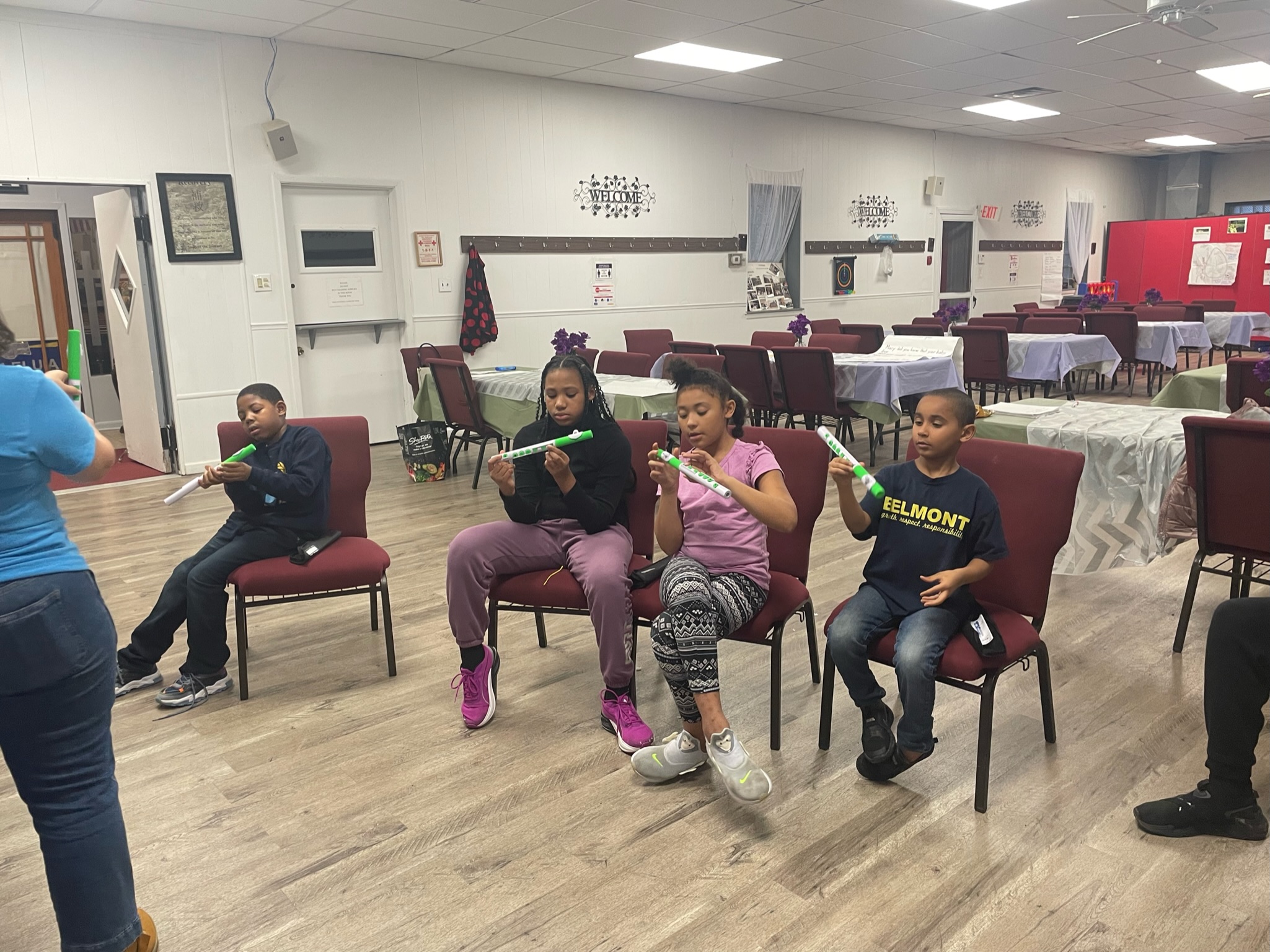
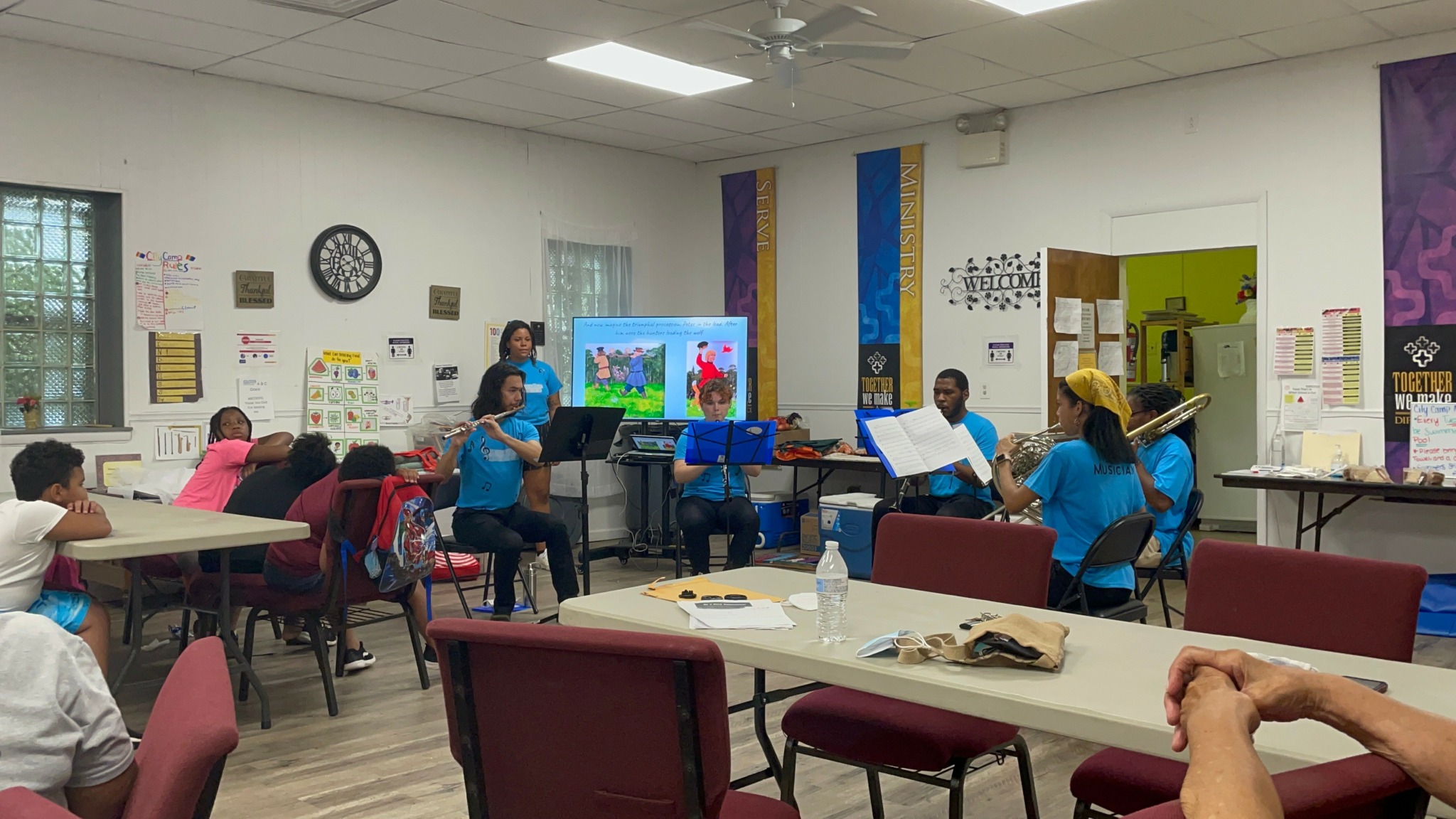
Are there any books, videos, essays or other resources that have significantly impacted your management and entrepreneurial thinking and philosophy?
One of the first books I read while attending Doing Good classes was ‘Reaching Out; A Musician’s guide to Interactive Performance’ by David Wallace*. This book was given to me by my former flute teacher and also teaching artist for the Doing Good class, Dr. Susana Lowey. This book teaches a new approach to the standard way of concerts. Making a concert interactive with the audience can make a world of a difference in how your audience perceives the themes of your concert and overall mission of your personal brand or organization. I still follow a lot of the principals laid out when we plan our own concerts and even incorporate them in our program structure.
*David Wallace has actually published a revised and updated version of this book called ‘Engaging the Concert Audience; A Musicians Guide to Interactive Performance’. In this book he builds more on ideas mentioned from “Reaching Out” but has also added new elements for performances in non-traditional settings (i.e schools, hospitals, correctional facilities, etc.) and planning for benefit concerts in your local community.*
‘Creating the Revolutionary Artist’ by Mark Rabideau was given to me by Mark, who at the time was the Director of the 21st Century Musician Initiative. Launched at Depauw Univerisity’s School of Music in 2013 to enhance the curriculum for music students to learn how to market themselves as musicians and entrepreneurs. I was sent this book after Generation Music won second place in the 21CM Doing Good contest, specifically for high schoolers doing good in their communities. Mark’s book really defined to me that being a musician has endless opportunities of how you can create impact in the real world and also market yourself through personal branding.
‘The Future of Happiness’ by Amy Blankson was given to me by one of my good friends. Amy Blankson talks about staying grounded and creating a balance between increased productivity due to the advancements of technology with well-being. I feel like being the generation that has grown up with so many advancements in technology can easily leave me feeling fatigued especially during the pandemic when all operations had to resume through digital communication. It’s important to know how to balance your consumption of technology and use it in a way that is productive to you overall goal for yourself or business. It’s even more important to practice self care, as a musician and entrepreneur it’s easy to lock yourself in a practice room and play for hours perfecting technique or a piece for an upcoming performance or staying up late writing your business model and goals. Being an entrepreneur is also learning the discipline of creating working boundaries for yourself so you don’t accidentally burn yourself out. I’m definitely guilty of not being the best at that when I first started Generation Music, but as I’ve gotten older, I’ve learned to value the time I have dedicated to the different aspects of my life and not overstepping that boundary for the sake of not overworking myself.
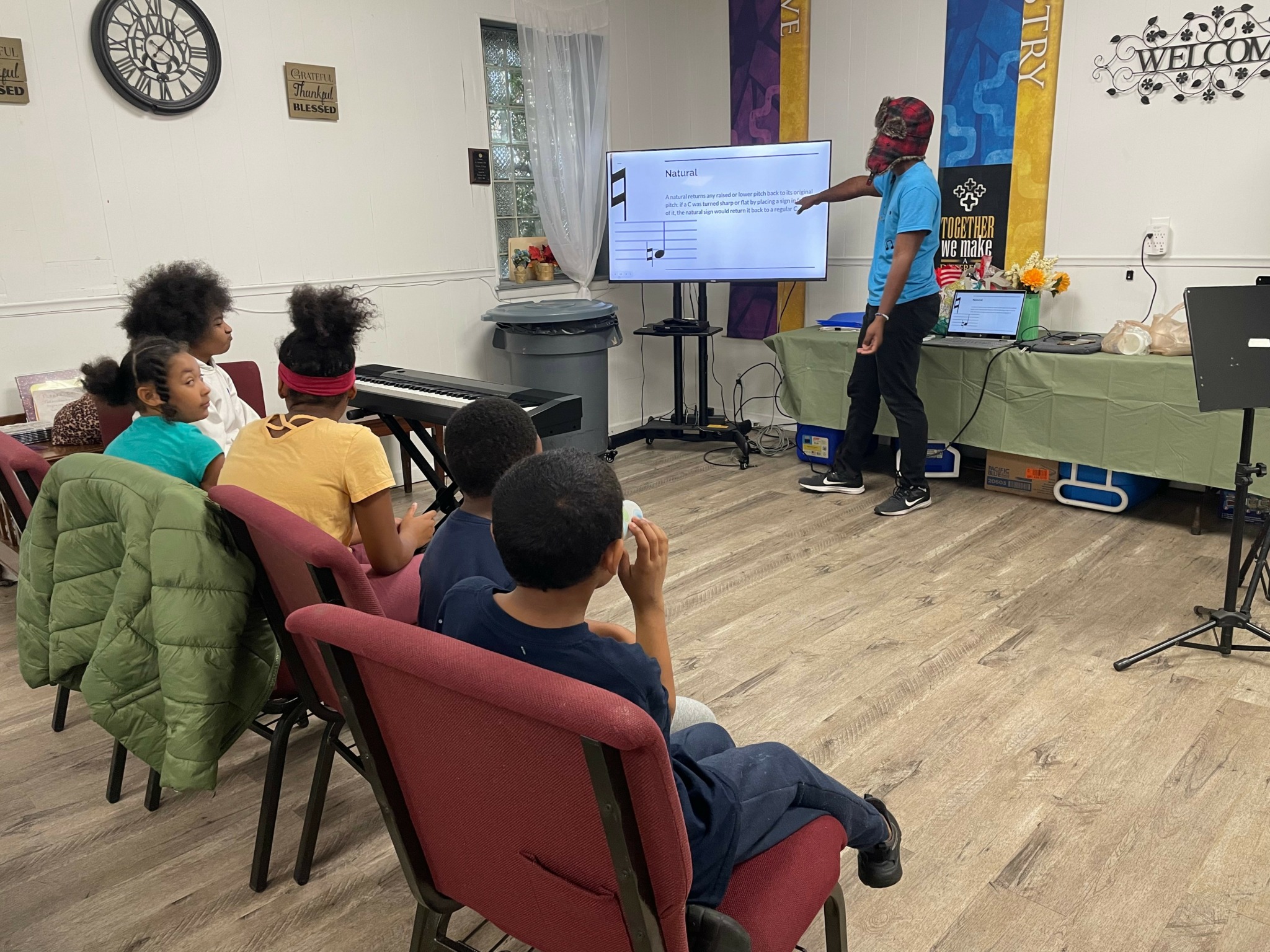
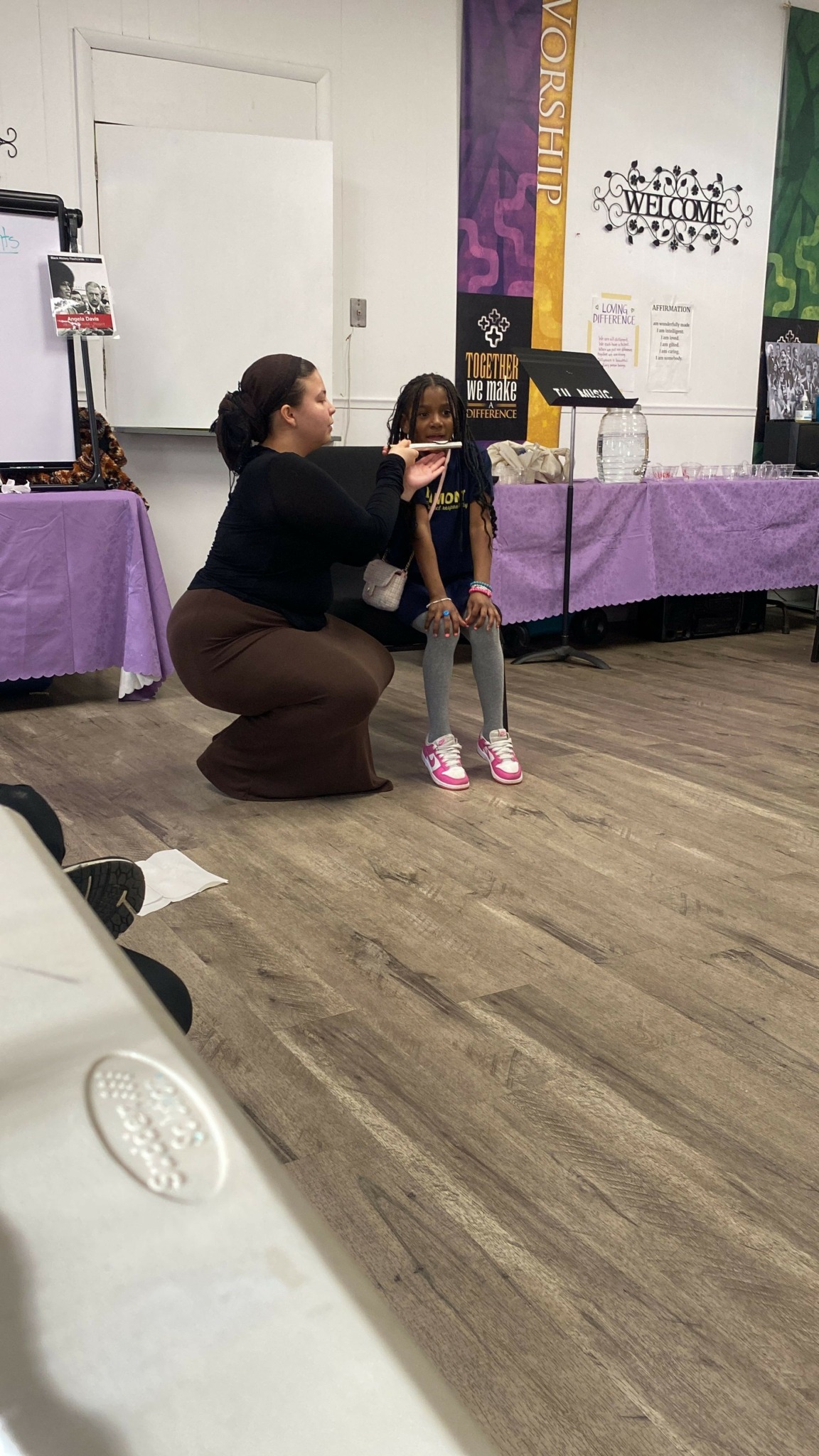
We’d love to hear the story of how you built up your social media audience?
Over the years, I’ve learned that social media can be used to a business’ advantage in reaching a broader audience, share work, testimonials, and impact being made. It’s a great way to visually draw in people to want to learn more about your work or organization. Instagram was the first social media page created for Generation Music. In the beginning, a lot of our followers came from our high school friends and family that wanted to support our project. There were posts about the programs we held at different schools, fundraiser events we hosted, and sometimes a little behind the scenes of the work being done for our programs. At that time though, we lacked identity in our branding which in my opinion makes it harder for people to remember who you are even if the work you do is great. Since then, Generation Music has definitely created a brand for itself, sticking with our iconic crystal blue color palette and using our tagline “Educating the next generation” has helped shaped our social media and grow our following and engagement. We went from posting inconsistently to using tools like Meta Business Suite to schedule our posts, stories, or reels that way we knew our Instagram in a way could still run on its own if no one was available to manage it. I think 2022 and 2023 is when our social media pages shifted to having more engagement and followers thanks to sharing posts from different Philly based music organizations on our own page. Engaging with these other pages looked like sharing upcoming community concerts, scholarships for high schoolers, or job openings at various music organizations. Becoming a resource hub for this type of information brought more people to our page or even shared by them to their friends. Now, our Instagram has 983 followers (hopefully we’ll be at 1k by the time this article is published!). I’m so proud of how far our social media presence has come and now that we have a social media intern I’m excited to see the new ideas she has to continue growing our page!
My advice for those just starting to build their social media presence is to take advantage of tools like Meta Business Suite, ChatGPT, and Canva. Meta Business Suite allows you to schedule posts, track analytics, boost ads AND manage your inbox for both Facebook and Instagram. ChatGPT has been a lifesaver for me to help me think of different ways to write captions and even create social media campaigns. Canva has changed so much from when I first started using it in 2017, you can make pretty much anything with plenty of templates to chose from if you don’t want to start from scratch. There’s options for specifying what your project is being used for so it can be the right dimensions (YouTube banner, Instagram logo, flyer, etc.) Canva even lets you create reels and edit any type of video. Consistency is key, taking an hour or two to take the time to create content and schedule them to be posted over a week can make so much of a difference. Knowing how these algorithms work is important, consistent posting and engagement with both what you post and from your timeline will push your profile more to be seen by not only your followers but by who they follow as well.
Contact Info:
- Website: https://www.generationmusic.art
- Instagram: generationmusic.philly
- Facebook: Generation Music

